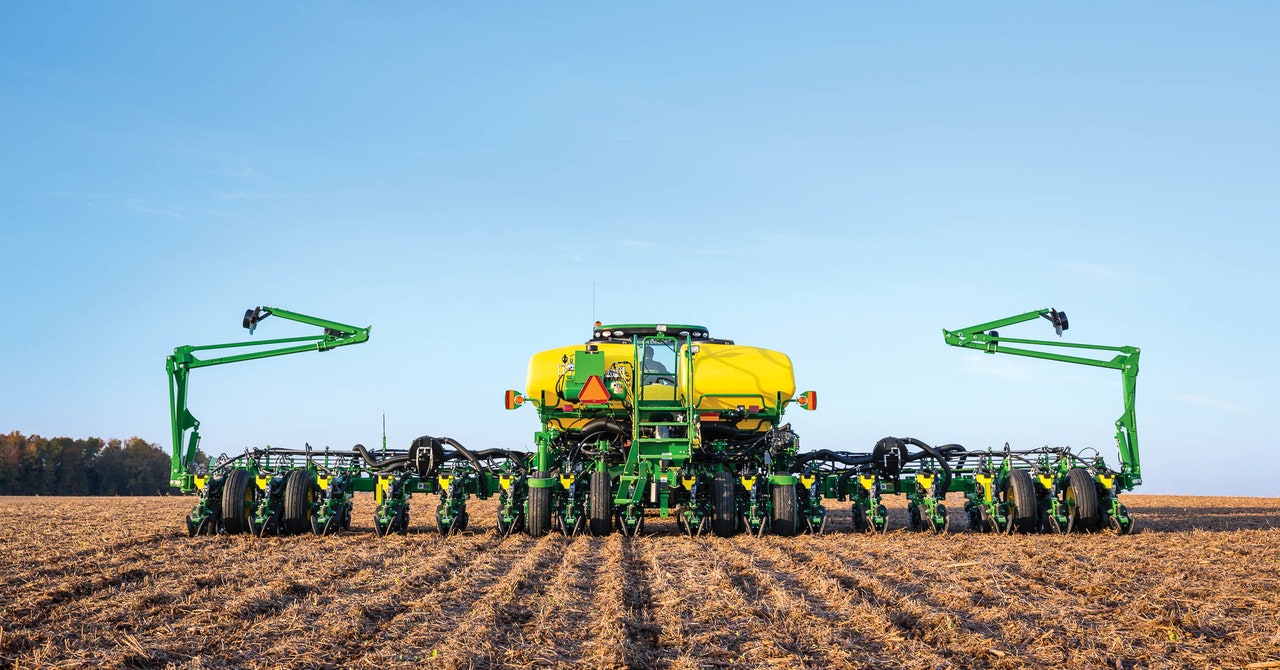Deere’s new agreement says it will allow farmers and independent repair shops to subscribe to or purchase tools, software and documentation from the company or its authorized repair facilities “on fair and reasonable terms.” The tractor giant also says it will ensure that every farmer, independent technician or independent repair facility will have electronic access to Deere’s Customer Service Advisor, a digital database of operator and technical manuals available for a fee.
The memorandum also promises to give farmers the option to “reset equipment that has been immobilized” – something that can happen when a security feature is accidentally activated. In the past, farmers could only reset their equipment by going to a John Deere dealer or having a John Deere authorized technician come over. “That’s been a huge complaint,” said Nathan Proctor, who leads the US PIRG’s right-to-repair campaign. “Farmers will be relieved to know that there might be a non-dealer option for that.”
However, other parts of the new agreement are too vague to offer farmers significant help, right-to-reparation advocates say. While the memorandum has a lot to say about access to diagnostic tools, farmers need to both troubleshoot and identify problems, says Schweitzer, who raises cattle on his 3,000-acre farm, Tiber Angus, in central Montana. “It’s great to be able to diagnose a problem, but if you find out it’s a sensor or electronic switch that needs replacing, that new part usually needs to be reprogrammed with the onboard electronic control unit,” he said. “And it is unclear whether farmers will have access to it That tools.”
Deere spokesman Haber said that “as equipment continues to evolve and technology on the farm advances, Deere remains committed to meeting those innovations with improved tools and resources.” The company will launch the ability to download software updates directly into some equipment this year with a 4G wireless connection, he said, but Haber declined to say whether farmers would be able to reprogram parts of equipment without going through the company or an authorized dealer. .
The new agreement is not legally binding. It states that if one of the parties determines that the MOU is no longer viable, they need only notify the other party in writing of their intention to withdraw. And both US PIRG and Schweitzer note that other influential farmer groups are not parties to the agreement, such as the National Farmers Union, where Schweitzer serves on the board and heads the Montana chapter.
Schweitzer is also concerned about how the agreement has been sprinkled with promises to provide farmers or independent repair shops with “fair and reasonable terms” for access to tools or information. “‘Fair and fair’ for a multi-billion dollar company may be very different for a farmer who is in debt, trying to make payments for a $200,000 tractor, and then having to pay $8,000 to $10,000 to buy hardware for repairs,” he says. .
The agreement signed by Deere this week follows New York Governor Kathy Hochul’s signing of the Digital Fair Repair Act, which requires companies to provide the same tools and information to the public as they do to their own repair technicians.
While right-to-repair advocates mostly hailed the law as precedent-setting, it was weakened by last-minute compromises regarding the bill, such as making it apply only to devices manufactured and sold in New York on or after July 1 . 2023, and by excluding medical devices, cars and household appliances.

